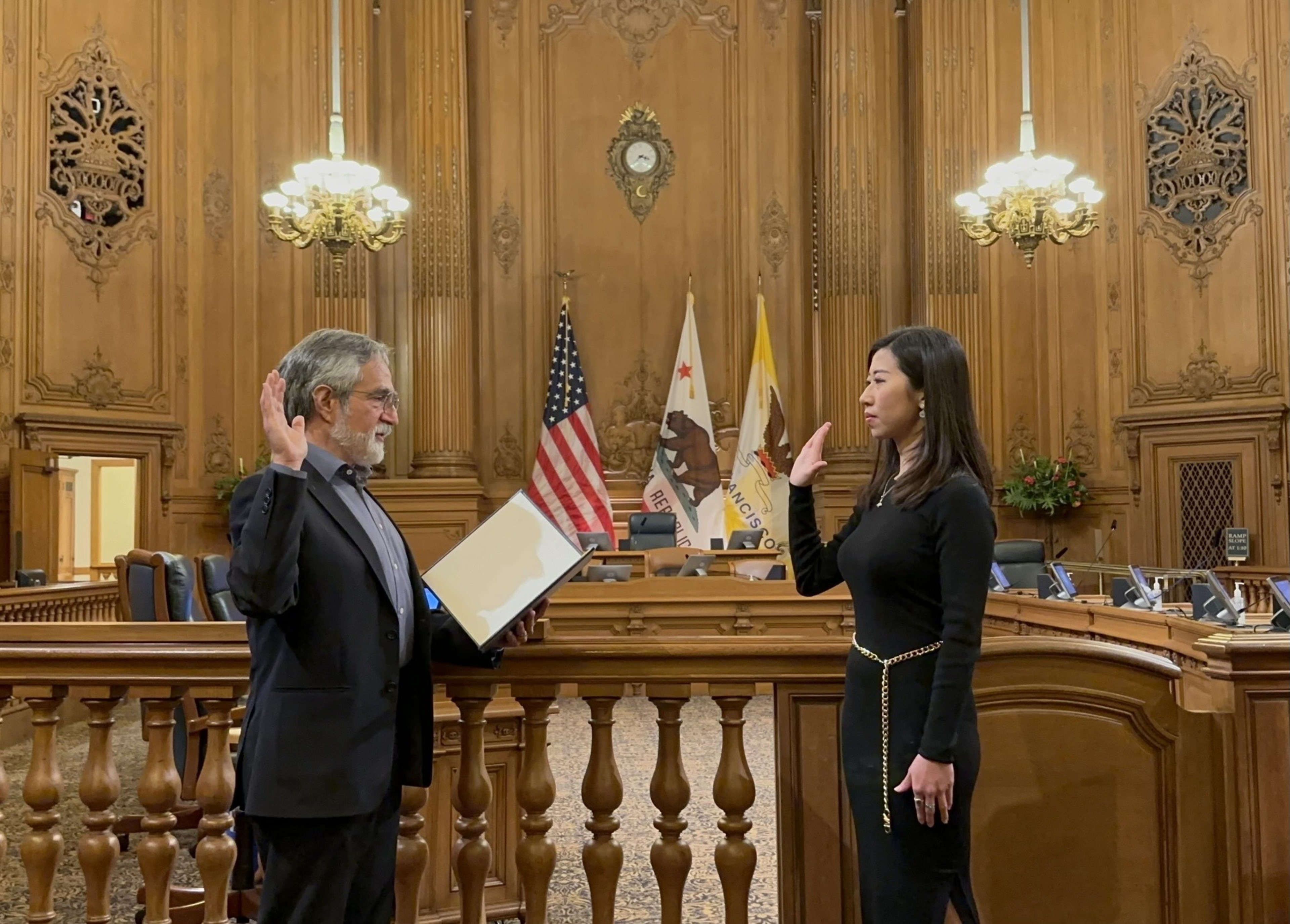Wing Kwan (Kelly) Wong, a Chinese immigrant from Hong Kong, recently found herself in the crosshairs of national conservative media.
Wong, 28, was sworn in as the newest member of San Francisco’s Elections Commission on Feb. 14, where she will help to set policies on the city’s elections.
But she’s not a U.S. citizen. With China’s Hong Kong passport and a visa to stay in America, Wong cannot vote in the elections she will be involved in as a commissioner. That has sparked a wave of conservative backlash amid geopolitical tension between the U.S. and China, with commentators painting Wong as a symbol of open borders and national security threats.
“It’s unbelievable,” Republican U.S. Sen. Eric Schmitt said on Fox Business (opens in new tab), addressing Wong’s appointment. “These people view themselves as global citizens. They view our borders as arbitrary lines on a map.”
Social media posts (opens in new tab) on X criticizing Wong’s appointment also blew up, fueling fears that Wong’s appointment is a sign of China’s political infiltration into U.S. politics.
Who is she?
Born and raised in Hong Kong, Wong came to the U.S. for graduate school at Tufts University in 2019. She now works for the nonprofit Chinese for Affirmative Action in San Francisco’s Chinatown.
In an interview with The Standard, Wong said immigrant rights are something she’s passionate about.
“I’m fluent in English, but I still encountered difficulties navigating a new system in the U.S.,” Wong said. “And I definitely felt frustrated and unheard.”

She emphasized she wanted to represent an immigrant voice in San Francisco, helping to ensure language access in elections, even though she cannot vote.
Wong pushed back against the xenophobic and anti-immigrant narratives that conservatives have placed on her. Chinese for Affirmative Action also confirmed that the organization has been receiving many anti-China and racist attacks in the wake of Wong’s appointment. Still, Wong said she wants to focus on the positive and make changes for San Francisco immigrant communities.
Ironically—despite accusations that she’s representative of China—Wong has been critical of Beijing. In her personal statement applying for the commissioner seat (opens in new tab), she discussed her participation in Hong Kong’s pro-democracy social movement years ago and witnessing the gradual erosion of freedom in Hong Kong.
Why can noncitizens serve?
In 2020, San Francisco voters passed a charter amendment, in a 54% to 46% (opens in new tab) vote, allowing non-U.S. citizens to serve on city commissions. San Francisco voters have embraced noncitizen participation in civic life, also voting to allow noncitizen parents to vote in school board elections.
“This is also in accordance with what the voters of San Francisco have repeatedly stated,” Aaron Peskin, the president of the Board of Supervisors who appointed Wong (opens in new tab), told The Standard. “It’s about bringing a diversity of voices that represent different segments of society to the conversation.”
Peskin said he’s proud of Wong and believes she will strengthen San Francisco’s election rules.
It’s unclear how many noncitizens are now serving in San Francisco’s commissions. Both the clerk of the Board of Supervisors and the Mayor’s Office said that they don’t ask for the immigration status of their appointees.
John Dennis, chair of the San Francisco Republican Party, slammed the city’s rule allowing noncitizens to serve on commissions. He also accused the Democratic Party of compromising America’s interests to please China.
“No fair-minded person would support this,” Dennis said. “There are plenty of Republican citizens who can fill this role.”
But Wong just wants to be an example to immigrants.
“I’m just one of the many immigrants striving to make a difference,” Wong said. “If I can do it, you know, you can do it too.”

